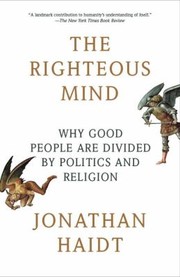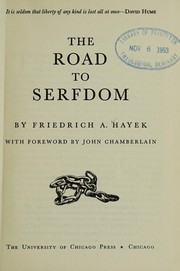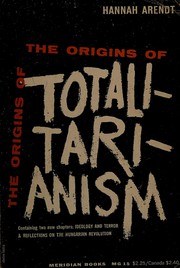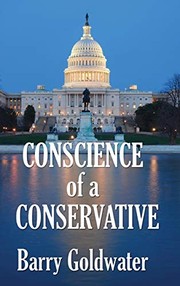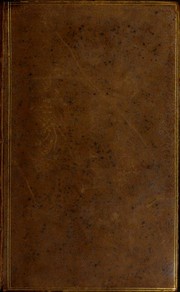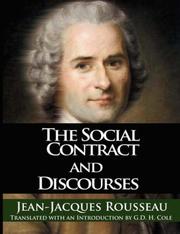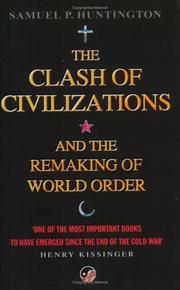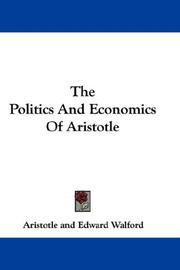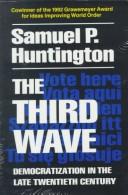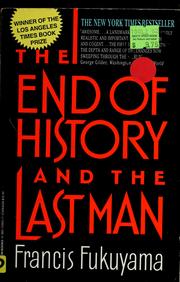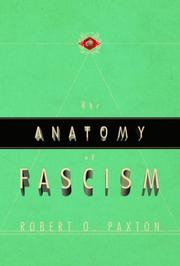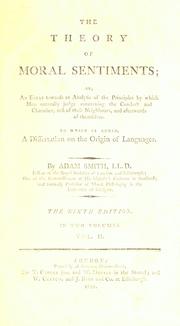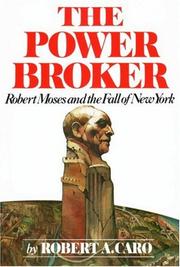If you ever find yourself immersed in the world of politics, you know that understanding different political ideologies is crucial. Whether you are a student of political science, a curious citizen, or a passionate activist, a book on political ideologies is a must-have in your collection. To help you navigate through the vast sea of ideas, we have compiled a list of the 20 best books about political ideologies that will expand your knowledge, challenge your perspectives, and ignite your intellectual curiosity.
Contents
- 1 The Righteous Mind: Why Good People Are Divided by Politics and Religion
- 2 The Road to Serfdom
- 3 The Communist Manifesto
- 4 The Origins of Totalitarianism
- 5 The Federalist Papers
- 6 The Conscience of a Conservative
- 7 The Prince
- 8 The Social Contract
- 9 The Clash of Civilizations and the Remaking of World Order
- 10 The Open Society and Its Enemies
- 11 The Politics
- 12 The Third Wave
- 13 The End of History and the Last Man
- 14 The Communist Hypothesis
- 15 The Anatomy of Fascism
- 16 The Theory of Moral Sentiments
- 17 The Wealth of Nations
- 18 The Power Broker: Robert Moses and the Fall of New York
- 19 The New Jim Crow: Mass Incarceration in the Age of Colorblindness
- 20 The Shock Doctrine: The Rise of Disaster Capitalism
- 21 Conclusion
The Righteous Mind: Why Good People Are Divided by Politics and Religion
by Jonathan Haidt
The Righteous Mind: Why Good People Are Divided by Politics and Religion by Jonathan Haidt is a fascinating book that delves into the complexities of human psychology and its role in shaping our political ideologies. Through extensive research and thought-provoking anecdotes, Haidt takes us on a captivating journey to understand why good people can hold such drastically different beliefs.
Haidt argues that our political ideologies are not solely based on rationality and logic, but are deeply rooted in our moral intuitions and emotions. He explores the idea that our moral judgments are influenced by six fundamental moral values: care, fairness, loyalty, authority, sanctity, and liberty. These values, he suggests, act as the building blocks of our political identities.
By examining various cultural and political divides, Haidt challenges us to step outside of our own moral bubbles and gain a deeper understanding of those who hold opposing viewpoints. He encourages us to move beyond the simplistic notion of “us versus them” and instead strive for empathy and understanding.
The Righteous Mind is not just a book about political ideologies; it is a book that invites us to reflect on our own beliefs and biases. It forces us to confront the uncomfortable truth that our moral judgments are not as objective as we might think. Through engaging storytelling and thought-provoking analysis, Haidt offers a fresh perspective on the complex nature of human morality and the role it plays in shaping our political and religious beliefs.
If you’re looking for a book that will challenge your assumptions and expand your understanding of political ideologies, The Righteous Mind is a must-read. Prepare to have your mind opened and your perspective broadened as you explore the intricate web of morality and its impact on our divided world.
The Road to Serfdom
by Friedrich Hayek
The Road to Serfdom, written by Friedrich Hayek, is a captivating book on political ideologies that challenges conventional wisdom and offers a thought-provoking critique of collectivism. Hayek’s powerful argument warns against the dangers of excessive government control, shedding light on the inevitable consequences of abandoning individual liberty.
The Communist Manifesto
by Karl Marx and Friedrich Engels
The Communist Manifesto, written by Karl Marx and Friedrich Engels, is a groundbreaking book on political ideologies that challenges the existing social and economic order. Published in 1848, this book about political ideologies remains a timeless and influential work that continues to shape the course of history.
Marx and Engels delve into the contradictions of capitalism, highlighting the exploitation of the working class by the bourgeoisie. They argue that the history of all societies is a history of class struggles, and predict that the inevitable downfall of capitalism will lead to a socialist revolution.
The political ideologies book explores the concept of communism, envisioning a society where the means of production are collectively owned and wealth is distributed equally among all members. Marx and Engels call for the proletariat, the working class, to rise up against their oppressors and establish a new social order.
Throughout the manifesto, Marx and Engels critique the flaws of capitalism, such as the alienation of labor and the concentration of wealth in the hands of a few. They argue that the capitalist system is inherently unstable and will eventually lead to its own demise.
In addition to their analysis of capitalism, Marx and Engels outline a series of ten immediate measures to be implemented after the revolution, including the abolition of property in land, a progressive income tax, and free education for all. They envision a future society where class distinctions and social inequalities are eliminated.
While some aspects of the manifesto may be controversial or have been implemented in different ways throughout history, the book on political ideologies remains a significant contribution to the study of economics, politics, and sociology. It challenges readers to critically examine the existing social order and envision a more equitable and just society.
The Origins of Totalitarianism
by Hannah Arendt
The Origins of Totalitarianism by Hannah Arendt is a captivating book on political ideologies that delves deep into the roots of totalitarianism. With meticulous research and profound analysis, Arendt examines the rise of this destructive force and its impact on society.
The Federalist Papers
by Alexander Hamilton, James Madison, and John Jay
The Federalist Papers is a book on political ideologies written by three brilliant minds: Alexander Hamilton, James Madison, and John Jay. Considered a masterpiece in American political thought, this influential collection of essays was published in 1787 and 1788 under the pseudonym “Publius”. Its purpose was to promote the ratification of the United States Constitution, which had been drafted just a few years earlier.
Within this book about political ideologies, Hamilton, Madison, and Jay explore the principles and values upon which the American government was built. They delve into the complexities of the proposed Constitution, discussing its merits and addressing concerns raised by its opponents. Through their writings, they make a compelling case for a strong central government, arguing that it would protect individual liberties and promote the common good.
The Federalist Papers provide a deep understanding of the political ideologies that shaped the foundation of the United States. They tackle fundamental questions about the balance of power, the separation of powers, and the importance of checks and balances. The authors skillfully dissect the strengths and weaknesses of the proposed system, presenting persuasive arguments that continue to resonate with readers today.
This political ideologies book is not only a historical treasure but also a timeless resource for anyone interested in understanding the principles upon which democratic societies are built. It offers valuable insights into the minds of the Founding Fathers and their vision for a strong and enduring nation. Whether you are a student, a scholar, or simply a curious reader, The Federalist Papers will captivate your intellect and deepen your appreciation for the complexities of governance.
The Conscience of a Conservative
by Barry Goldwater
The Conscience of a Conservative, written by Barry Goldwater, is a thought-provoking book on political ideologies that challenges conventional wisdom and encourages individuals to question their beliefs. Goldwater’s compelling arguments and insightful analysis make this book a must-read for anyone seeking a deeper understanding of the complex world of politics and governance.
The Prince
by Niccolò Machiavelli
The Prince by Niccolò Machiavelli is a captivating book on political ideologies that delves into the complex world of power, strategy, and leadership. With an astute understanding of human nature, Machiavelli presents a masterful analysis of how rulers can acquire and maintain their authority.
The Social Contract
by Jean-Jacques Rousseau
The Social Contract, written by the influential philosopher Jean-Jacques Rousseau, is a captivating book on political ideologies that challenges the traditional notions of governance and individual freedom. This thought-provoking masterpiece delves into the intricate relationship between society and the individual, exploring the concept of a social contract as the foundation for a just and harmonious political system.
The Clash of Civilizations and the Remaking of World Order
by Samuel P. Huntington
The Clash of Civilizations and the Remaking of World Order by Samuel P. Huntington is an extraordinary book on political ideologies that challenges conventional wisdom and offers a thought-provoking analysis of global politics.
Huntington argues that the primary source of conflict in the post-Cold War era will not be ideological or economic, but cultural. He introduces the concept of “civilizations” as the key actors in the global stage, representing different cultural identities and values. These civilizations, such as Western, Islamic, Confucian, and Hindu, are predicted to clash and reshape the world order.
In this book about political ideologies, Huntington predicts that future conflicts will be driven by cultural differences rather than traditional political or economic interests. He highlights the clash between Western and Islamic civilizations as the most significant and potentially volatile. The book also delves into the rise of non-Western powers, such as China and India, and their impact on the global balance of power.
Huntington’s analysis is both comprehensive and controversial. He challenges the prevailing notion of a unipolar world dominated by Western values and argues for the importance of cultural identities in shaping global politics. His insights have been praised for their foresight, but also criticized for oversimplifying complex geopolitical dynamics.
If you are interested in understanding the intersection of culture, politics, and international relations, this political ideologies book is a must-read. It will challenge your assumptions, broaden your perspective, and provide a fascinating analysis of the forces shaping our world.
The Open Society and Its Enemies
by Karl Popper
Are you curious about the intricate web of ideas that shape our societies? Look no further than Karl Popper’s groundbreaking masterpiece, The Open Society and Its Enemies. This intellectual marvel is not just another book on political ideologies; it is a captivating journey into the depths of human thought and the battle between freedom and tyranny.
In this thought-provoking work, Popper dissects the foundations of political ideologies, exploring their historical origins and exposing their inherent flaws. He challenges the prevailing belief that social and political systems can be perfect and instead argues for the value of an open society—one that embraces critical thinking, individual freedom, and democratic governance.
Popper’s writing is engaging and accessible, as he effortlessly navigates through centuries of philosophical and political theories. He fearlessly confronts influential thinkers like Plato, Hegel, and Marx, dismantling their arguments and offering a compelling alternative vision for a better future.
Throughout the pages of this book, Popper emphasizes the importance of intellectual humility, recognizing that no ideology or system can claim absolute truth. Instead, he advocates for a society that encourages debate, embraces diversity, and constantly challenges its own assumptions.
Whether you are a seasoned political scholar or simply curious about the forces that shape our world, The Open Society and Its Enemies is a must-read. This profound exploration of political ideologies will leave you questioning your own beliefs and inspire you to participate actively in the ongoing quest for an open, inclusive, and just society.
The Politics
by Aristotle
The Politics by Aristotle is a captivating book on political ideologies that delves into the intricate workings of governance and human society. Aristotle’s masterful exploration of political ideologies is as relevant today as it was centuries ago. This thought-provoking book about political ideologies takes readers on a journey through the complexities of political systems, examining different forms of governance, from monarchy to democracy. Aristotle’s insightful analysis provides a deep understanding of the fundamental principles that shape societies and their political ideologies. This political ideologies book is a timeless treasure that challenges readers to critically examine the structures that govern our world and invites us to ponder the possibilities for a more just and equitable society.
The Third Wave
by Samuel P. Huntington
The Third Wave by Samuel P. Huntington is a captivating book on political ideologies that takes readers on a thought-provoking journey through the fascinating world of political transformations. Huntington, a renowned political scientist, delves deep into the realm of government systems, exploring how they evolve and reshape societies.
In this enthralling book about political ideologies, Huntington introduces the concept of “waves” to describe the historical patterns of political change. He argues that there have been three major waves of democratization throughout history, each wave bringing a surge of countries transitioning from authoritarian rule to democratic governance.
However, Huntington’s analysis goes beyond just the rise and fall of political systems. He examines the underlying factors that drive these transitions, such as economic development, social mobilization, and international influences. Through his meticulous research and insightful analysis, he sheds light on the complex interplay between domestic and international forces in shaping the destiny of nations.
By exploring case studies from around the world, Huntington illustrates the challenges and opportunities that arise during these political transformations. He discusses the triumphs and pitfalls of democratization, highlighting the importance of political institutions, civil society, and the rule of law in building sustainable democracies.
This political ideologies book is not only an academic work but also a call to action. Huntington emphasizes the significance of understanding these waves of political change to navigate the turbulent seas of global politics. He invites readers to reflect on the future of democracy and the role they can play in shaping it.
So, if you’re seeking a captivating exploration of political ideologies and the forces that shape our world, dive into The Third Wave. Huntington’s thought-provoking analysis will leave you with a deeper understanding of the past, present, and future of political systems, and perhaps even inspire you to become an agent of change in this ever-evolving world.
The End of History and the Last Man
by Francis Fukuyama
The End of History and the Last Man by Francis Fukuyama is a thought-provoking book on political ideologies that challenges our understanding of the world we live in. Fukuyama explores the idea that with the collapse of the Soviet Union and the triumph of liberal democracy, humanity has reached the end point of its sociocultural evolution.
In this fascinating book about political ideologies, Fukuyama argues that liberal democracy represents the highest form of government and that all other ideologies have failed to provide a better alternative. He contends that the desire for recognition and the need to live in a society that upholds certain universal values, such as freedom and equality, are inherent to human nature.
Fukuyama delves into the history of political thought, examining the rise and fall of various ideologies throughout different periods. He explores the influence of philosophers such as Hegel, Marx, and Nietzsche on the development of political ideologies and their impact on society.
Through his analysis, Fukuyama raises thought-provoking questions about the future of humanity. Is liberal democracy truly the end point of history, or are there still challenges and alternatives that lie ahead? Can we avoid stagnation and complacency in a world where the struggle for recognition continues to shape our societies?
This political ideologies book challenges conventional wisdom and invites readers to critically examine the world around them. Fukuyama’s insightful analysis provokes deep reflection on the trajectory of human civilization and the potential paths it may take in the future.
The Communist Hypothesis
by Alain Badiou
The Communist Hypothesis is a captivating book on political ideologies that challenges conventional wisdom and offers a fresh perspective on the concept of communism. Written by the renowned French philosopher Alain Badiou, this thought-provoking work delves into the very essence of political ideologies.
The Anatomy of Fascism
by Robert O. Paxton
The Anatomy of Fascism by Robert O. Paxton is a captivating exploration into the depths of political ideologies. This thought-provoking book delves into the twisted roots of fascism, dissecting its anatomy to reveal the inner workings and motivations of this dangerous ideology.
The Theory of Moral Sentiments
by Adam Smith
The Theory of Moral Sentiments by Adam Smith is a fascinating book on political ideologies that delves into the complexities of human nature and ethics. Smith, often considered the father of modern economics, goes beyond his renowned work on capitalism in The Wealth of Nations and explores the moral foundations that underpin society.
In this thought-provoking book about political ideologies, Smith presents a compelling argument that human beings are not solely driven by self-interest, as many political ideologies suggest. Rather, he contends that empathy and sympathy are at the core of our moral sentiments and social interactions.
Smith’s exploration of political ideologies is both insightful and timeless, as he grapples with questions of morality, justice, and the role of government. He argues that a well-functioning society relies on individuals who are guided by a sense of fairness and compassion towards others.
With eloquent prose and a wealth of examples, Smith challenges conventional political ideologies and urges readers to consider the importance of empathy in shaping a just and harmonious society. His ideas continue to resonate today, reminding us of the profound impact our moral sentiments have on our collective well-being.
So, if you’re seeking a thought-provoking and enlightening political ideologies book, look no further than The Theory of Moral Sentiments. Prepare to be captivated by Smith’s exploration of human nature and the moral foundations of society, and gain a deeper understanding of the intricate interplay between self-interest and empathy.
The Wealth of Nations
by Adam Smith
The Wealth of Nations: A Revolutionary Book on Political Economy
Adam Smith’s The Wealth of Nations is a groundbreaking book about political economy that has shaped the way we understand wealth, trade, and the role of governments. Considered the cornerstone of modern economics, this masterpiece provides valuable insights into the inner workings of markets and the factors that drive economic growth.
Published in 1776, The Wealth of Nations was a revolutionary text that challenged the prevailing economic theories of its time. Smith’s work sought to explain how nations accumulate wealth and how this wealth can be maximized through free markets and limited government intervention.
At its core, this book is a captivating exploration of political ideologies, delving into the fundamental principles of capitalism and the invisible hand theory. Smith argues that individuals, when acting in their own self-interest, unintentionally contribute to the greater good of society. This concept, often referred to as the invisible hand, suggests that the pursuit of personal gain by individuals leads to the overall prosperity of a nation.
In his comprehensive analysis, Smith covers a wide range of topics, including the division of labor, the role of wages, the nature of money, and the benefits of international trade. He emphasizes the importance of competition, arguing that it is the driving force behind innovation and economic progress. Smith’s ideas continue to resonate today, as they provide a solid foundation for understanding the complexities of modern economies.
Smith’s eloquent prose, combined with his meticulous research and logical reasoning, make The Wealth of Nations a timeless classic. It remains an essential read for anyone interested in understanding the intricate workings of political economies and the underlying principles that shape our modern world.
The Power Broker: Robert Moses and the Fall of New York
by Robert A. Caro
The Power Broker: Robert Moses and the Fall of New York by Robert A. Caro is a captivating exploration of political ideologies that takes readers on a rollercoaster ride through the life of one of the most powerful figures in New York City history.
Caro delves deep into the life and career of Robert Moses, a man known as the mastermind behind the city’s infrastructure projects. But this book is much more than a simple biography. It is a political ideologies book that unravels the complex web of power, corruption, and ambition that shaped the city and its people.
Caro’s meticulous research and vivid storytelling transport readers to a bygone era, where Moses’s iron fist ruled over New York. From his controversial urban planning initiatives to his ruthless tactics in acquiring land, Caro paints a vivid picture of a man consumed by his own vision of a modern metropolis.
But The Power Broker is not just a story about one man’s rise to power. It is an incisive exploration of political ideologies and the impact they can have on a city and its people. Caro examines the intricate relationship between power and democracy, highlighting the often unseen forces that shape the political landscape.
Throughout the book, Caro weaves together a compelling narrative that keeps readers on the edge of their seats. He effortlessly blends historical facts with personal anecdotes and interviews, creating a gripping story that reads like a novel.
The Power Broker is a must-read for anyone interested in political ideologies and the inner workings of power. Caro’s meticulous research and engaging storytelling make this book an invaluable resource for understanding the complexities of political power and its impact on society.
The New Jim Crow: Mass Incarceration in the Age of Colorblindness
by Michelle Alexander
The New Jim Crow: Mass Incarceration in the Age of Colorblindness by Michelle Alexander is a thought-provoking book on political ideologies that explores the systemic racism and oppression within the American criminal justice system.
Alexander argues that despite the progress made in the civil rights movement, racial inequality still persists, albeit in a different form. She coins the term “The New Jim Crow” to describe the current era, where racial bias and discrimination are hidden behind a veneer of colorblindness.
In this book about political ideologies, Alexander delves into the history of racial control in the United States, tracing its roots back to slavery and the Jim Crow era. She then highlights how the War on Drugs and the subsequent mass incarceration of black and brown communities have perpetuated a racial caste system.
Alexander presents compelling data and statistics to support her argument, demonstrating how the criminal justice system disproportionately targets people of color. She also explores the collateral consequences of mass incarceration, such as the denial of voting rights, employment opportunities, and access to housing for those with criminal records.
Through her meticulous research and analysis, Alexander challenges the notion of a colorblind society and exposes the structural racism that continues to affect millions of Americans. She calls for a radical reimagining of the criminal justice system and urges readers to confront the uncomfortable truths about racial inequality in America.
The New Jim Crow is a powerful political ideologies book that forces readers to question their own assumptions and confront the pervasive racism that still exists in society today.
The Shock Doctrine: The Rise of Disaster Capitalism
by Naomi Klein
The Shock Doctrine: The Rise of Disaster Capitalism by Naomi Klein is a captivating book on political ideologies that delves deep into the dark underbelly of global economic systems. In this thought-provoking masterpiece, Klein uncovers the intricate web of power and manipulation that lies at the heart of disaster capitalism.
Conclusion
In conclusion, these 20 best books about political ideologies provide a comprehensive overview of the diverse range of political beliefs and philosophies that shape our world today. Whether you are a student of political science, a curious reader, or someone seeking a deeper understanding of the political landscape, these books offer valuable insights and thought-provoking analysis. From classic works to contemporary publications, this curated list covers a wide spectrum of ideologies, including liberalism, conservatism, socialism, feminism, and more. By delving into these texts, readers can gain a deeper understanding of the principles, values, and debates that drive political discourse. Explore these books and embark on a journey of intellectual discovery!
